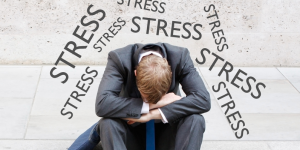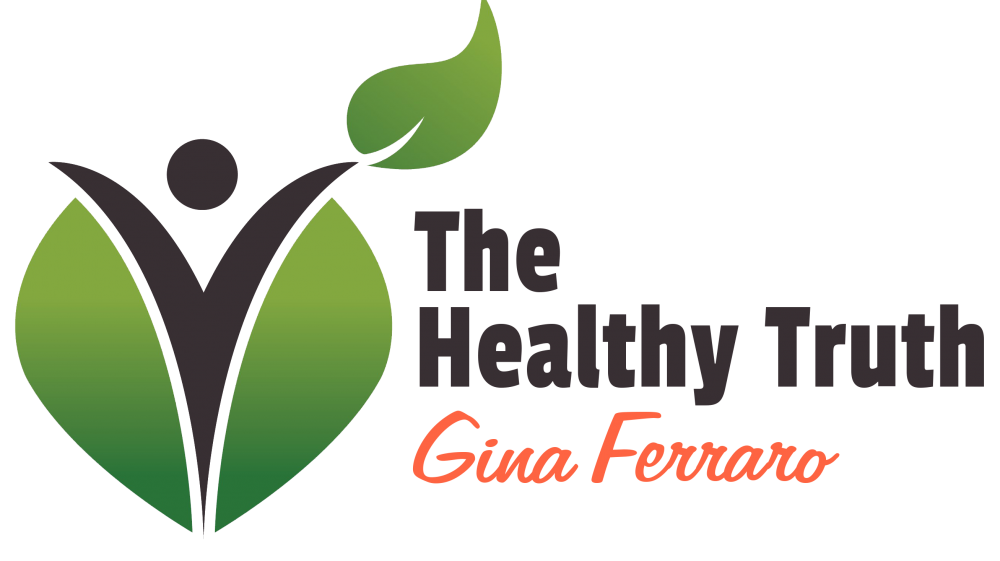by Gina Ferraro | May 28, 2014 | Diet, Exercise, Health, Nutrition, Stress management, Weight loss, Wellness

Stressors are inevitable. Life can produce the never-ending pressure of chronic stress. When this happens the body constantly releases the stress hormones of adrenaline, noradrenaline and cortisol.
If this is not controlled, chronic stress can lead to diminished health, disease, and can eventually kill us.
Stress can manifest itself by increasing the risk/s of:
* Obesity/weight gain
* Insulin resistance/type II diabetes
* Hypertension
* Hypercholesterolemia (high cholesterol)
* Cardiovascular disease
* Chronic pain
* Depression and anxiety disorders
* Eating disorders (both under AND overeating)
* Drug & alcohol abuse (including smoking).
Stress tolerance has an important influence on your ability to sustain the quality of your life. If you cannot tolerate stress, then you cannot enjoy a high quality of life. One of the most important factors for achieving this is the ability to choose coping behaviours where you can influence the stressful situation by keeping calm and maintaining control.
Most people don’t realise that there is a strong relationship between stress management and impulse control. When you control your impulses, you are reducing your potential stress factors. Controlling stress can also contribute to your weight-loss goals as well as your general health and wellness.
Some stress management strategies include:
* Meditation
* Include optimistic visualisation
* Adopting positive self-talk
* Controlled Breathing
* Exercise
* Relaxation
* Take time out daily. Include holidays
* Take up an enjoyable hobby
* Get a dose of humour
* Distraction (NOT with food, drugs, or alcohol!)
* Having a support network to share thoughts & feelings
* Talk to a psychologist 1 on 1 (therapy sessions are NOT just for mental illness but also for your mental health which high doses of stress can deteriorate).
Ensure you pay as much attention to stress management as to your weight-loss, nutrition, health, and exercise goals as the relationship between them all is more important than you might think!
by Gina Ferraro | May 20, 2014 | Diet, Exercise, Health, Nutrition, Weight loss, Wellness

Burn fat fast with explosive exercises
Metabolism is the energy required by your body to maintain itself. There are a few things that contribute to this. Genetics of course … but there ARE ways to increase your metabolism.
First and foremost – exercise! But the greatest metabolic burn occurs with high intensity-type of exercise. Interval training (HIIT), power training (explosive), and strength training are the BEST methods. These recruit all your muscle fibre types and use the most amount of calories to do so. They are anaerobic therefore they are high intense with shorter duration periods (meaning they require rest in between sets). They are MY favourite cardio exercises to do and in fact I am dressed ready to head to the gym to partake in my own HIIT session. 🙂 The great thing about these types of training is that you aren’t just burning extra energy whilst performing the activity itself, but you have the added benefit of burning more energy during the recovery period. Because these activities are so intense, the recovery period extends for a longer period and requires much more energy to repair the body than lower intensity activities.
Remember though that the workout is only a small part of fat loss. Don’t ruin your hard work by putting low quality food into your mouth after. If you want your body to use stored fat as fuel for your workout – then stop overfeeding it otherwise it has all the fuel it requires and doesn’t need to tap into its stored sites.
Please note: Some explosive exercises can be contraindicated for injuries (depending on the injury and the exercise being performed) so be aware and consult with a reputable musculoskeletal specialist (such as a physiotherapist) if unsure. Then get an exercise program designed by a reputable Exercise Physiologist (….I can refer a great one!)
Secondly, the types of foods you eat will determine the metabolic response. Natural foods take more energy to digest than their processed counterparts – as too does protein. It is largely believed (and actually promoted by a lot of fitness “professionals”) that “grazing” throughout the day helps to stoke the metabolic flame that helps you to lose weight. Specifically, that eating smaller meals more frequently will raise their metabolism enough to lose weight.
There is some truth to this statement in that our metabolism increases each time we eat, as our bodies have to use energy to break down the food we have put in. But what isn’t taken into consideration is how MUCH it increases. The more you eat at one meal, the more digestion and work needs to be done by the body and the higher the metabolic increase. If you eat less at each meal but eat more frequently, your metabolism increases more OFTEN….but not as much as with a larger meal. So which is better?
Bottom line: Choose the eating pattern that works best for you.
So we need to consider the TOTAL amount of metabolic increase over the entire day’s eating. If you were to eat 2000 calories over three meals, and the SAME calories (and types of food) over six smaller meals, your metabolic increase is roughly the same! Interestingly, adding protein to every meal does in fact increase energy expenditure because protein is harder to break down (see https://www.thehealthytruth.com.au/a-calorie-is-not-a-calorie/)
Enjoy, and don’t forget to put some quality into your training AND into your food choices and you will find your metabolic rate firing on all cylinders.
by Gina Ferraro | May 13, 2014 | Exercise, Health, Injury prevention, Weight loss, Wellness

There are a few myths and misconceptions about sweating when exercising:
Myth #1. “If I sweat loads I will lose weight.”
Fact: Well yes I guess this is in PART true. But the weight you lose is water weight NOT fat weight, and will be replaced when you replace the necessary fluids during hydration!
Myth #2: “If I sweat excessively then that means I am unfit.”
Fact: Sweating is a way to thermoregulate (i.e. regulate your body temperature) and some people are more efficient at dissipating body heat than others, and this is NOT indicative of fitness levels.
When you exercise your body creates heat (when muscles contract the fibres slide over one another creating friction) and you have four methods to release this heat. Radiation, Convection, Conduction, and Evaporation. Now sweating comes under evaporation, but if it is actually dripping off you then it isn’t evaporating and therefore not really assisting you in cooling down. To help this along you will benefit from adding some convection (movement of air) via a fan as when airflow is added to a wet body it cools much faster than when it is added to a dry body.
Myth #3. “If you aren’t sweating whilst you exercise then you aren’t working hard enough”.
Fact: This is also incorrect. The explanation is the same as myth 2.
Your body loses as much as 1.5 litres of water a day and as much as that per hour during strenuous exercise in a hot environment.
As a general guideline, aim to drink around 8 cups or 2 litres/day (more if you exercise) and keep hydrated. However, this is just a guideline and each individual has different hydration requirements that will determine their specific intake.
Note: Fluid intake can also occur when consuming foods that contain water such as fruit and vegetables and this contributes to your required daily intake.
by Gina Ferraro | May 9, 2014 | Exercise, Health, Injury prevention, Wellness

We have ALL been there I am sure (I am STILL there). We finally get ourselves motivated to getting fitter and healthier then all of a sudden life thinks it is funny to put an obstacle in our way, and watches from the sidelines as we try to figure out how to get around it. I’m talking about injuries. Aaaargh! Frustrating!
Often injuries make great excuses to putting our health and fitness goals “on hold”. But what happens if our injuries are chronic and life-long? Do we just avoid health at ALL cost to accommodate? I hope not. I certainly don’t let it run MY life.
We need to stop focusing on what we CAN’T do, and find out what we CAN do. In other words, stop finding excuses and look for solutions. I am not suggesting that it is easy by any means, but it IS possible. I have worked with many clients who had debilitating injuries. Some could barely walk! But if we become sedentary as a result….we lose capabilities in OTHER areas (especially our muscles). Now these past clients were determined not to let their injuries rule their lives and many are now living more mobile lives and enjoy the associated benefits.
I myself prolapsed a lumbar disc in 2007. It and the linked neural sciatic pain were the WORST pain I have EVER experienced. I couldn’t walk without excruciating pain for almost a year. Admittedly though I DID let it take control of my life for another year afterward and if that continued, then I shudder to think of my condition today. It was hard but I got back into fitness – specifically my weight training. I had to change around my program and accommodate my injuries.
Chronic injuries will always be painful. Anyone who has them knows that there is rarely a pain-free day. BUT if we don’t keep our body’s strong that pain will escalate and other areas will become injured to compensate until we are completely unable to move anymore.
There are musculoskeletal specialists that can assist with injury management. General practitioner doctors are very limited in this area so there is little benefit going to see them (unless asking for a referral to a specialised musculoskeletal or orthopaedic doctor). You will need to research a credible and capable physiotherapist (who are regarded as GOD’S in my line of work) and even certain Chiropractors. Just like any occupation there are good and bad and you DO have to do your homework. Once you have been assessed and a rehab program is suggested…a specialised trainer such as an exercise physiologist would be best at assisting. (Please note that basic Personal Trainers are NOT qualified nor usually competent at dealing with injuries!)
The important thing is that all professionals need to be working as a TEAM and each person’s expertise needs to be respected by the other. This will ensure the best possible outcome for the poor injured patient.
by Gina Ferraro | May 5, 2014 | Health, Mental health, Wellness

Mental Health problems are a very prominent part of our society, and something that many sufferers experience a stigma with. I myself am a lifelong sufferer of severe clinical depression and let me share this with those of you who are oblivious to it – depression is NOT something I choose nor is it something I can “get over”! It is a very real disease and requires daily management just as other diseases often do.
I would also like to explain that there is a distinct difference between depression as a disease and depression as a phase someone goes through when life throws them a curve ball. Though the symptoms are often the same, one is for a shorter term by comparison and is often the result of a trauma (of any kind) whilst the other is for life and can still affect the person even when everything is going well. Now for just a brief moment (if you dare) imagine how life is for a person suffering depression as a disease when THEY experience trauma! It’s absolutely horrific let me tell you.
In my experiences people who have had a hardship are often very judgmental over me because they were able to recover and therefore I should also have the ability to do so “if I really wanted to”. Sigh! This is a topic that frustrates me so much and the ignorance of others makes life even more unbearable for those of us who are plagued with this dark and often devastating and debilitating illness. Isolation KILLS….and yet people who have depression often isolate themselves for fear of judgment, misunderstanding, and ridicule when they are the ones who most need support, care, and nurturing.
Health is not just about the physical. It is about the mental and emotional self as well. So it would be nice if our society were a little more accepting and not make our lives harder than they inevitably already are.
I absolutely LOVE this video (http://www.youtube.com/watch?v=vr3x_RRJdd4) and it always brings a tear to my eye (plus the song is from one of my favourite bands which is a nice touch) 🙂 It really isn’t that difficult to bring a smile to someone’s face. Please…..Be kind to each other.
I wish you all love, health and happiness for now and always.





